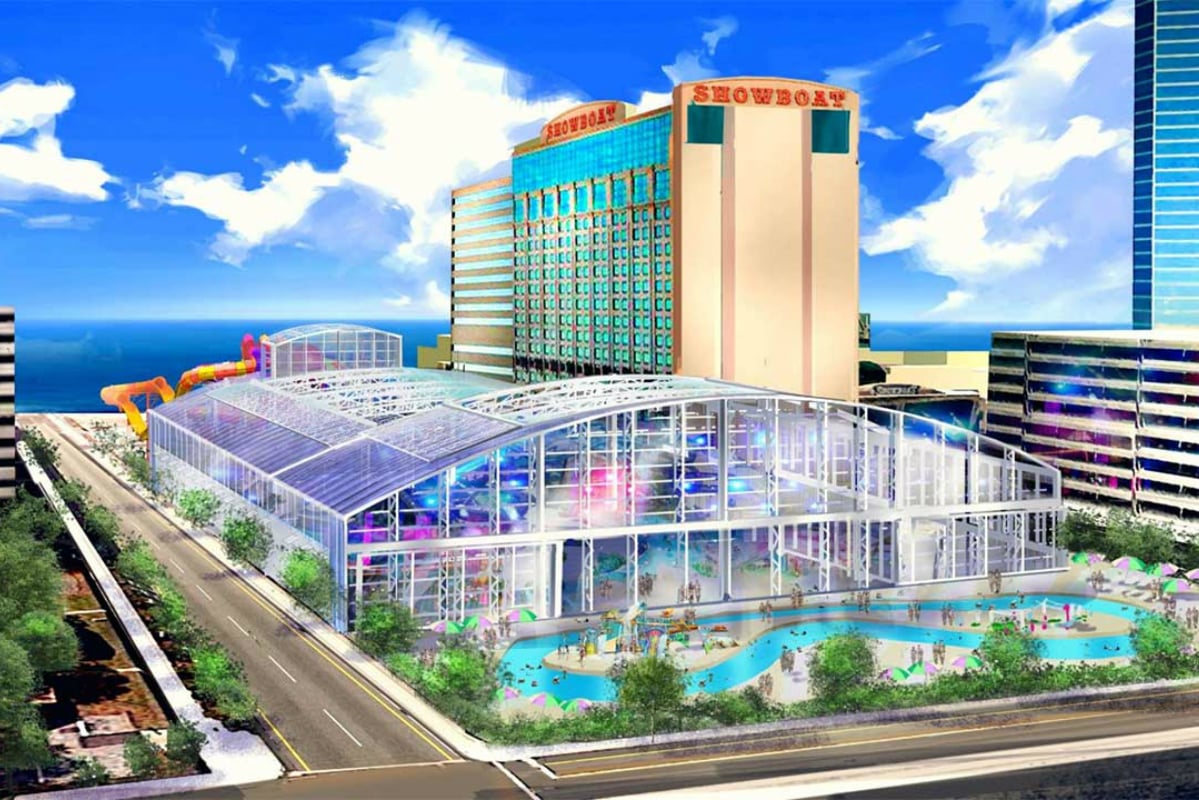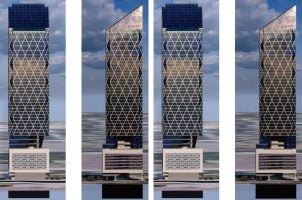Showboat Atlantic City Owner Seeks $50M in Tax Credits for $100M Waterpark
Posted on: December 16, 2020, 08:29h.
Last updated on: December 16, 2020, 10:09h.
Unlike Las Vegas, Atlantic City’s casinos still predominantly rely on gambling to lure in travelers. But one property owner has a plan to change that reality.

The Showboat is situated between Hard Rock to its south and Ocean Casino to its north. It has been a non-gambling property since the former Caesars Entertainment sold the resort in 2014 to Stockton University for $18 million. After legal issues prevented the university from transforming the casino into student housing, Philadelphia-based real estate developer Bart Blatstein acquired the Showboat in January of 2016 for $23 million.
Blatstein opened the Showboat as a non-gaming Boardwalk hotel that July. A deed restriction placed by Caesars on the Showboat prevents it from operating a casino.
The real estate mogul has considered ways to circumvent the gaming deed restriction, including building a separate casino space next to the current building on what’s now outdoor beach volleyball courts. But now, it appears Blatstein is ready to focus not on gaming — but families.
Atlantic City’s Pitch as Family Destination
Instead of going the traditional gaming path that Atlantic City resorts have relied on for decades, Blatstein says it’s time to make the East Coast’s gambling capital more family-friendly.
His solution: a $100 million waterpark at the Showboat. This week, Blatstein received land approval from the New Jersey Casino Reinvestment Development Authority (CRDA) to construct the attraction on the Showboat’s beach volleyball courts.
It’s abundantly clear that Atlantic City is lacking in family destinations,” Blatstein told the Associated Press this week. “There’s not enough for them to do here. This will create Atlantic City’s first year-round family resort.”
But before the project moves forward, Blatstein wants the CRDA to designate the waterpark as an entertainment retail district. That would qualify the business for up to $2.5 million in annual sales tax credits for 20 years after opening. The waterpark could also be afforded tax reductions on construction materials.
An Upcoming Overhaul?
Las Vegas has an abundance of attractions that appeal to people of all ages. The city additionally relies on convention businesses (during non-pandemic years) to keep the town’s more than 150,000 hotel rooms occupied throughout the year.
Atlantic City isn’t so fortunate. As colder temperatures set in and the Atlantic Ocean is no longer is a draw, the gambling town becomes rather barren in the off-season.
Blatstein isn’t the first to float an indoor waterpark. Unsuccessful proposals in recent years have been made at the vacant Atlantic Club Casino Hotel, which has sat closed since early 2014.
I made a trip to Atlantic City prior to COVID-19, and even in the warmer weather, it feels far from a family-friendly environment.
Just steps off the Boardwalk near Resorts and Hard Rock is a strip club. Walk along the Boardwalk, and you’ll come across staples such as arcades, hot dogs, fries, and ice cream, but also tobacco and vape lounges, tattoo shops, and seedy massage parlors.
Hard Rock is on board with Blatstein in making Atlantic City more family-friendly. The casino property recently agreed to pay the owner of Score’s, a gentlemen’s club, $1 million for 13 years to get off of its property and end its lease. Scores was a carryover from the casino when it operated as Trump Taj Mahal.
Related News Articles
Most Popular
Tropicana Las Vegas to be Imploded, Tentative Date Set
VEGAS MYTHS BUSTED: Golden Gate is the Oldest Casino in Vegas
DraftKings Leads Bank Sports Betting Survey, ESPN Bet Surprises
Most Commented
-
End of the Line for Las Vegas Monorail
— April 5, 2024 — 90 Comments -
Long Island Casino Opponents Love New York Licensing Delays
— March 27, 2024 — 5 Comments
















No comments yet